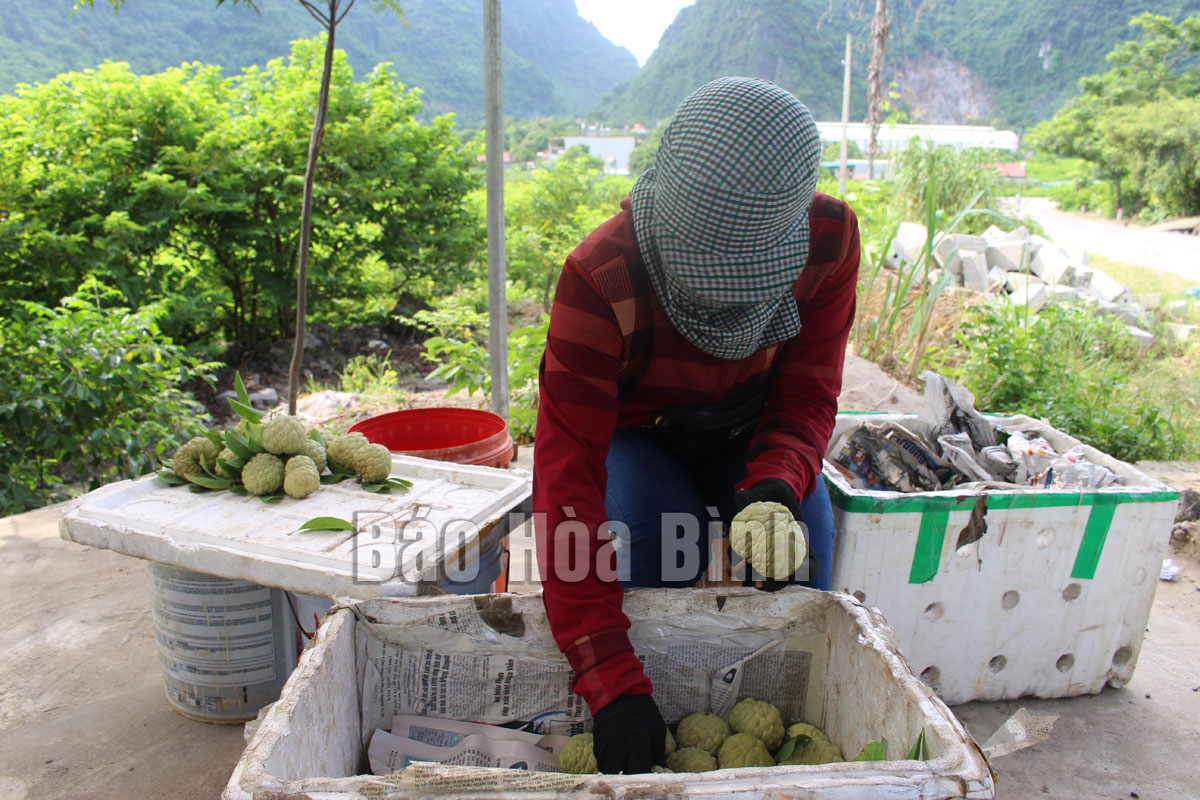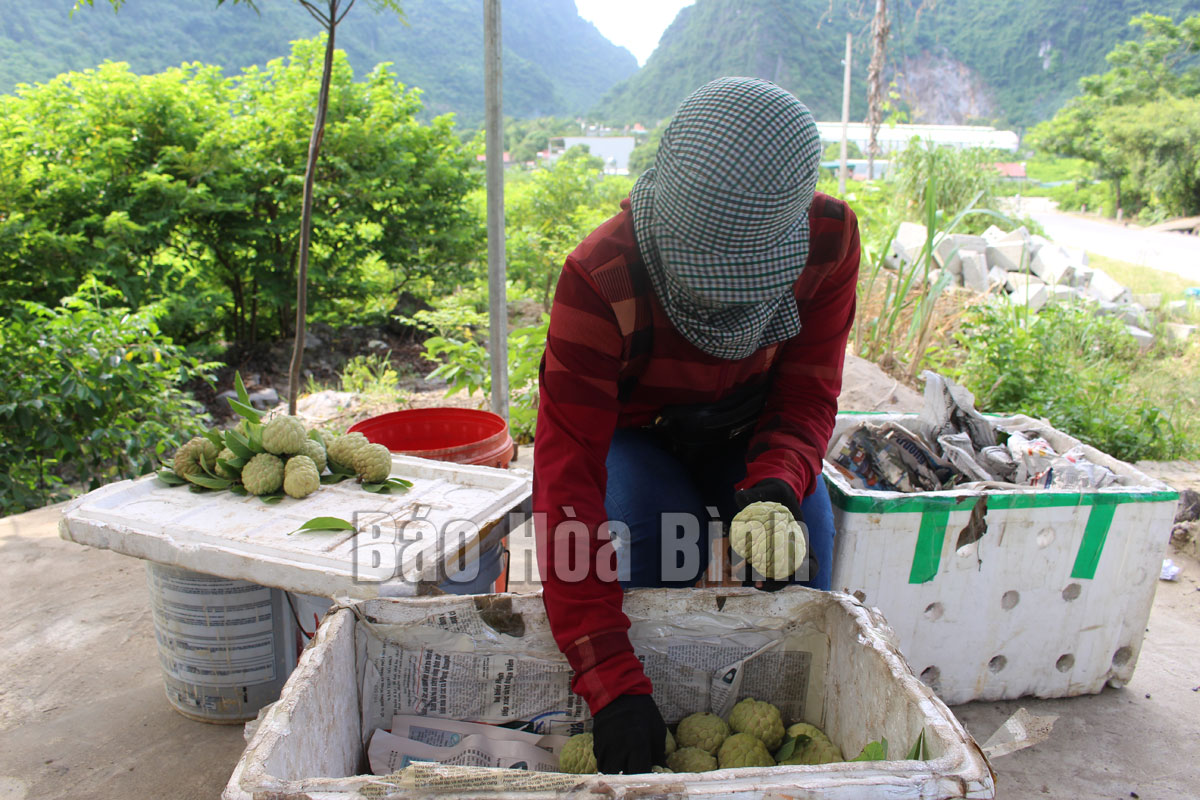
(HBO) – Hoa Binh province has entered the harvest season of some key agricultural products. In order to ensure quick consumption of agricultural products, ensuring output, quality and price, the agriculture and rural development sector is making efforts to support and create favorable conditions for local farmers and traders to participate in the consumption of agricultural products in accordance with the requirements of COVID-19 prevention and control.
Leaders of the provincial Farmers' Union and Kim Boi District
Farmers' Union conduct a field survey in Son Thuy longan area, Xuan Thuy
commune, to help households sell products.
In Dong Tam commune (Lac Thuy district), custard apple entered the harvest
season two weeks ago. At the beginning of the season, custard apple was sold
for 60,000 VND per kg, however, by the end of July, the pressure from the
pandemic has caused the purchasing power to decrease, hence led to a reduction
in price. The custard apple's price now is around 25,000 VND per kg and could
only be consumed locally.
To address the situation, the People's Committee of Lac Thuy district has
issued three guiding documents on the transportation of essential goods in
order to create favorable conditions for local people and small businesses
while ensuring compliance with epidemic prevention and control regulations.
Hoang Dinh Chinh, deputy head of the district's Division of Agriculture and
Rural Development, said the whole district has 25 ha of custard apple which is
in the harvesting period, with an output of 250 tonnes. It is necessary to
urgently implement appropriate solutions to promote consumption so that the
fruit's quality is not affected.
Bui Duc Bien, Vice Chairman of the provincial Farmers' Union, said the union
continued to monitor the actual situation in a number of localities to promptly
support farmers with the sale of agricultural products.
The provincial People's Committee has just issued Decision No. 1536/QD-UBND
approving solutions and plans for the consumption of agricultural products
during the COVID-19 pandemic. Accordingly, the province focuses on supporting
the harvest and consumption of agricultural products including longan, bananas,
vegetables, citrus fruits, and animal products and aquatic products.
Besides, Hoa Binh province is increasing exchange and working
activities with major partners in order to promote the consumption of
agricultural products, while organising promotional activities and programme
and effectively stepping up advertisements on a number of websites and
e-commerce platforms./.
According to data from the Hoa Binh Provincial Party Committee, the industrial production index for the first six months of 2025 is estimated to have increased by 20% compared to the same period last year. This marks the highest year-on-year growth rate for this period since 2020.
In the first six months of 2025, Hoa Binh province’s export turnover was estimated at 1.145 billion USD, marking an 18.11% increase compared to the same period in 2024. Import turnover was estimated at $ 804 million, a 17.15% increase, which helped the province maintain a positive trade balance.
The lives of the ethnic minority farmers in Tan Lac district have gradually improved thanks to the new directions in agricultural production. This is a testament to the collective strength fostered through the professional associations and groups implemented by various levels of the district’s Farmers’ Union.
With the motto the "product quality comes first,” after nearly one year of establishment and operation, Muong village’s Clean Food Agricultural and Commercial Cooperative, located in Cau Hamlet, Hung Son Commune (Kim Boi district), has launched reputable, high-quality agricultural products to the market that are well-received by consumers. The products such as Muong village’s pork sausage, salt-cured chicken, and salt-cured pork hocks have gradually carved out a place in the market and they are on the path to obtaining the OCOP certification.
In the past, the phrase "bumper harvest, rock-bottom prices" was a familiar refrain for Vietnamese farmers engaged in fragmented, small-scale agriculture. But today, a new spirit is emerging across rural areas of Hoa Binh province - one of collaboration, organisation, and collective economic models that provide a stable foundation for production.
Maintaining growing area codes and packing facility codes in accordance with regulations is a mandatory requirement for agricultural products to be eligible for export. Recently, the Department of Agriculture and Environment of Hoa Binh province has intensified technical supervision of designated farming areas and packing facilities to safeguard the "green passport" that enables its products to access international markets.



